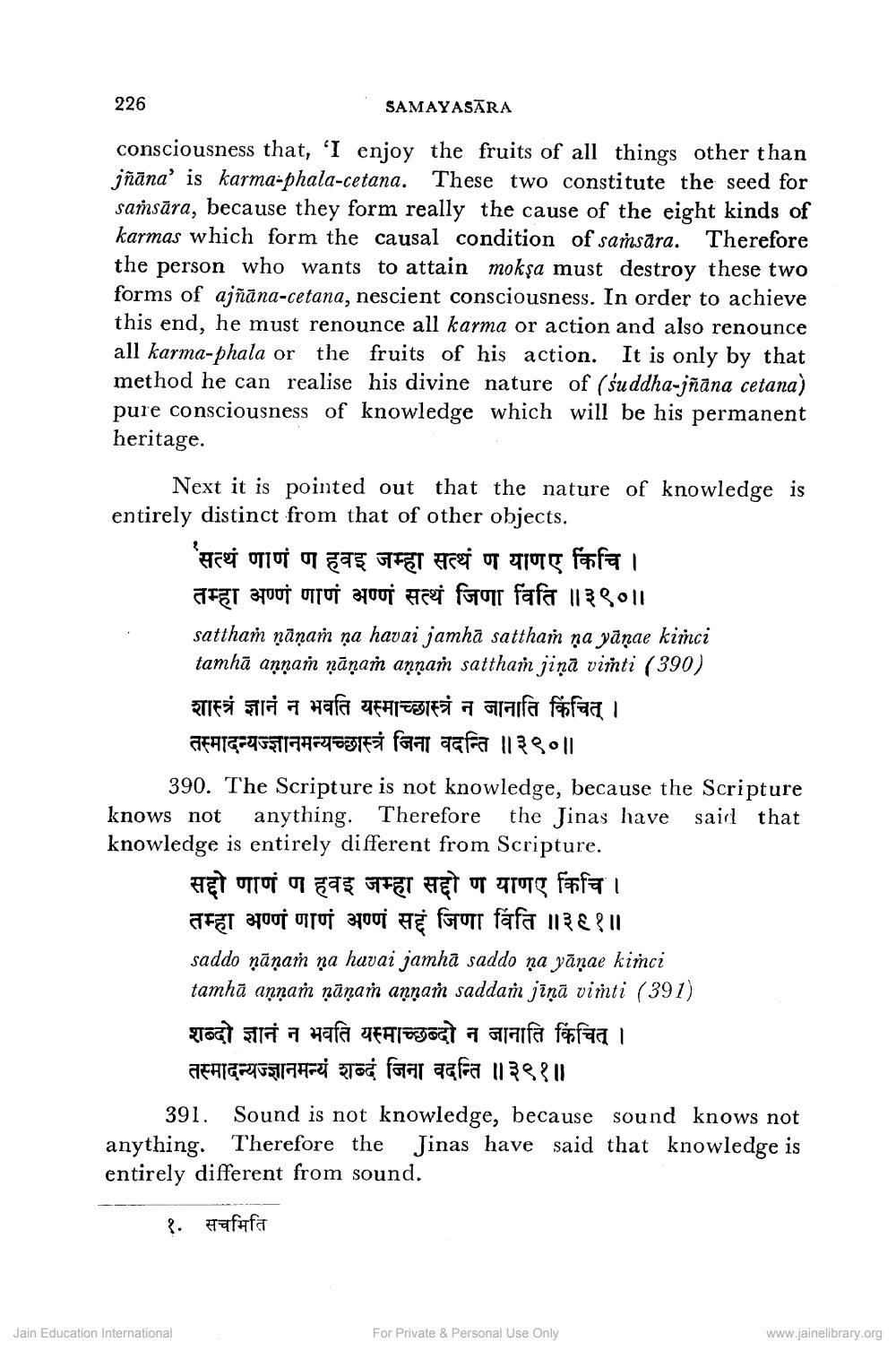________________
226
SAMAYASĀRA
consciousness that, 'I enjoy the fruits of all things other than jñāna' is karma-phala-cetana. These two constitute the seed for samsāra, because they form really the cause of the eight kinds of karmas which form the causal condition of samsāra. Therefore the person who wants to attain mokşa must destroy these two forms of ajñāna-cetana, nescient consciousness. In order to achieve this end, he must renounce all karma or action and also renounce all karma-phala or the fruits of his action. It is only by that method he can realise his divine nature of (śuddha-jñāna cetana) pure consciousness of knowledge which will be his permanent heritage.
Next it is pointed out that the nature of knowledge is entirely distinct from that of other objects.
'सत्थं णाणं ण हवइ जम्हा सत्थं ण याणए किंचि । तम्हा अण्णं णाणं अण्णं सत्थं जिणा विति ॥३९०॥ sattham nāņań na havai jamhā sattham na yānae kimci tamhā annam nānam annam sattham jind vinti (390) शास्त्रं ज्ञानं न भवति यस्माच्छास्त्रं न जानाति किंचित् ।
तस्मादन्यज्ज्ञानमन्यच्छास्त्रं जिना वदन्ति ॥३९०॥
390. The Scripture is not knowledge, because the Scripture knows not anything. Therefore the Jinas have said that knowledge is entirely different from Scripture.
सद्दो णाणं ण हवइ जम्हा सद्दो ण याणए किचि । तम्हा अण्णं णाणं अण्णं सह जिणा विति ॥३६१॥ saddo ņāņam na havai jamhā saddo ņa yāṇae kimci tamha annam rānam annam saddam jinā vinti (391) शब्दो ज्ञानं न भवति यस्माच्छब्दो न जानाति किंचित् । तस्मादन्यज्ज्ञानमन्यं शब्दं जिना वदन्ति ॥३९१॥
391. Sound is not knowledge, because sound knows not anything. Therefore the Jinas have said that knowledge is entirely different from sound.
१. सचमिति
Jain Education International
For Private & Personal Use Only
www.jainelibrary.org




